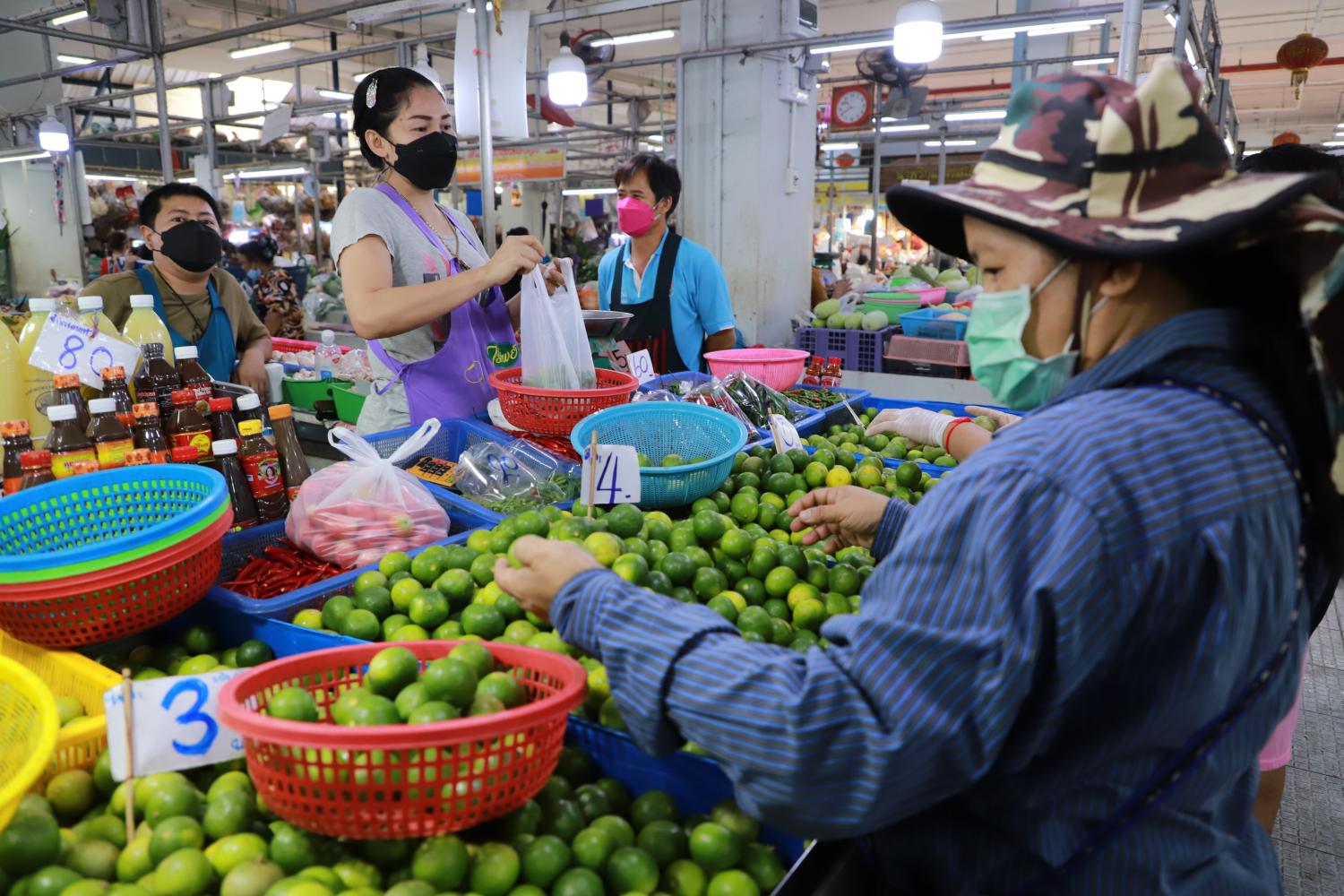
Consumer sentiment dropped for the second straight month in February, hitting the lowest level in five months, as consumers fret over the rapid spread of the Omicron variant and the escalating Russia-Ukraine conflict.
The University of the Thai Chamber of Commerce (UTCC) reported on Wednesday the consumer confidence index fell to 43.3 in February from 44.8 in January. It stood at 46.2 in December, 44.9 in November, 43.9 in October and 41.4 in September.
An index lower than 100 points reflects weak purchasing power from the slow economic recovery.
Thanavath Phonvichai, president of the UTCC, said people have growing concerns about the rapid infection rate of the Omicron variant which now adversely affects people's lives, businesses and tourism and the ongoing fighting between Russia and Ukraine that triggered a frenetic rise in global oil prices and higher production costs.
"The war has emerged as an important factor that may slow the global economic recovery or weaken the overall global economy," he said.
"This may have a negative impact on exports and the economy in the future."
According to Mr Thanavath, a continuous rise in oil prices would also lead to more expensive prices of products and services, aggravating overall current and future consumer confidence.
"Consumers also remain concerned about the country's economic situation, job opportunities and future income. The Russia-Ukraine conflict has worsened domestic purchasing power and led consumers to become more cautious in their spending," he said.
In a related development, UTTC on Wednesday announced the TCC Confidence Index, which gauges the sentiment of the business sector and members of the Thai Chamber of Commerce in all provinces nationwide.
It declined to 36.1 from 37.2 in January and 37.8 in December driven by worries over a rising domestic infection rate of Covid-19, growing concern over the Russia-Ukraine conflict, the rising cost of living from higher oil prices and product prices.
Business operators proposed the state come up with measures to prevent the impact of the Russia-Ukraine conflict; measures to manage rising Covid-19 cases; and assistance to alleviate higher prices of fuel as well as electricity bills to reduce household debt.
They also called for the acceleration of big-ticket government investment projects.